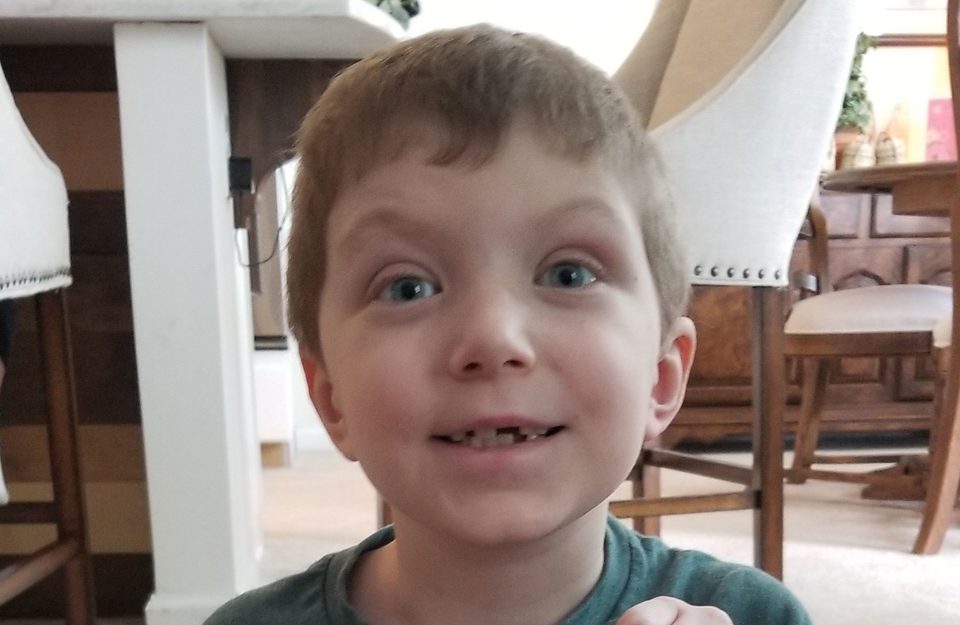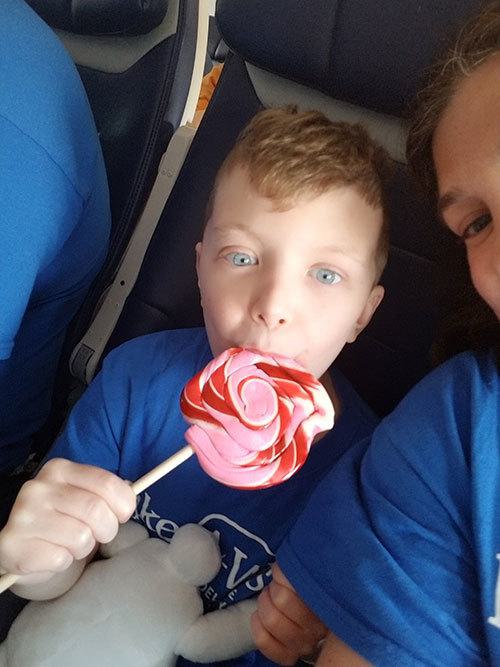Fertility Surgery Offers Hope to 7-year-old Battling Brain Tumor

In March 2018, Erica Avello was awakened by the sound of her 6-year-old son, Frankie Knowles, screaming in pain.
“My head hurts! My head hurts! Make it stop!” he shrieked, but his cries didn’t last long. Within a half hour, he went from screaming to non-responsive.
Thinking it was a bad bout of flu, Erica pressed her hand to his forehead: it was cold. Too cold. His temperature read 94.2. At first, she wondered if the thermometer was broken; then she called her pediatrician, who advised her to take Frankie to the emergency room.
CT scans and MRIs revealed that his brain was bleeding from pilomyxoid astrocytoma, a tumor roughly the size of a walnut nestled in the middle of Frankie’s brain, adjacent to the regions controlling body temperature, hormones, vision, and the adrenal gland.

Despite the frightening diagnosis, chemotherapy has reduced the brain tumor by more than 30 percent. (An additional four tumors have formed in his spine). The prognosis is good; the twenty-year survival rates for Frankie’s disease range from 70 to 80 percent. And there is more reason for Frankie and his family to be hopeful: thanks to the work of Dr. Kyle Orwig, Frankie may one day be able to father children.
Erica credits the nurse who served as her son’s cancer care coordinator with connecting them to Orwig’s research, which seeks to preserve fertility for childhood cancer survivors.
“We want to think about Frankie not only as he is now, but as he will be when he is an adult,” she said.
The procedure involves storing testicular tissue in a freezer, which doctors could re-implant after Frankie reaches puberty, when the tissue could then hopefully produce sperm. Approximately 5 percent of the tissue is retained for additional research with the family’s consent.
“At an age-appropriate level, he understands that he has a tumor in his brain, and he has tumors in his spine,” Erica Avello says. “He knows chemo is medicine to make them go away.”
In terms of the testicular procedure, Erica and her husband, Rick Knowles, explained it this way: “Someday, you may want to be a daddy. And this will help you.”
An easygoing child by nature, Frankie took that surgery in stride — after a three-week hospital stay, an outpatient procedure seemed relatively minor by comparison. Today, as a chatty, friendly 7-year-old, Frankie goes to school, occasionally missing a Friday afternoon for a chemo appointment.
Erica says she tries to focus on the optimistic prognosis for her son’s surivival rate, and remains hopeful that the fertility surgery will offer him choices as an adult that previous childhood cancer survivors did not have.
“I just didn’t want cancer to take one more thing from him. It’s already stolen enough,” Erica says. “If he doesn’t ever use it, OK. But I didn’t want to look back 30 years from now and have him say, ‘Mom, why didn’t you do that for me?’ How do you say that to someone — I didn’t think it was worth it?”
She is also a strong proponent of donating a portion of Frankie’s tissue toward research.
“How can anyone expect the procedures and the medicine to move forward if they don’t have the available tissue to work with? We need to be able to have the tools to do the research,” she reasons. “Other families can benefit, maybe, someday. And that’s our contribution to the world.”
Be the First to Know
Get the latest research, news, events, and more delivered to your inbox.